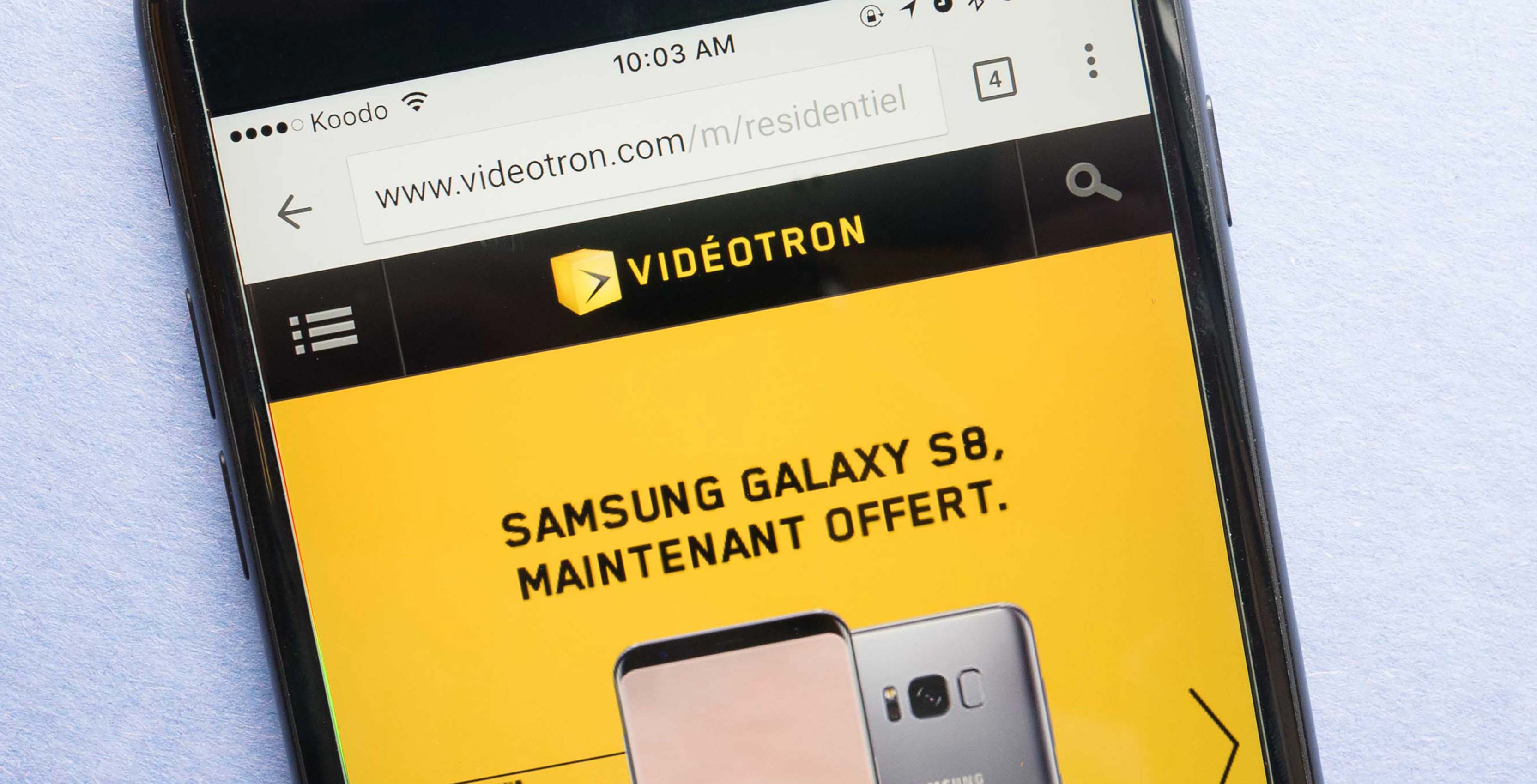
Quebecor’s Vidéotron has selected Samsung Canada as its 5G vendor.
A press release from Samsung Canada indicated that the company will be providing 4G LTE-Advanced and 5G radio access network solutions to the carrier and that this will be “the first time Samsung is delivering network solutions in Canada.”
Vidéotron indicated in the release that it plans to launch the networks in late 2020, and that starting early 2020, Samsung will deliver 4G LTE-A solutions in Quebec and Ottawa.
“We have been all over the world to find the best supplier suited to meet the evolving needs of our customers. This partnership will allow us to deliver the most advanced telecommunications solutions to Quebecers. While 4G technology has profoundly transformed telecommunications in the world, LTE Advanced and 5G will undoubtedly revolutionize the way we interact with our loved ones and the environment around us,” Jean François Pruneau, CEO of Vidéotron, said in the release.
“We want to be with our customers through these major changes and the choice of Samsung as a supplier is not a coincidence, we are convinced that they represent the best option to achieve this objective. Vidéotron has always been at the forefront of major technological changes and the arrival of 5G is no exception.”
Samsung Canada will be competing with Nokia, Ericsson, Huawei
Stephen Wiktorski, head of Samsung networks at Samsung Canada, said that the partnership has been in the making for 10 years and that Samsung Canada has been doing research and development into 5G for that many years.
“In the past 10 years, we’ve been working hard to make sure we bring the products and portfolios that our carriers partners would want so that they can deploy 5G with the best possible performance, capacity and flexibility that was available to them,” he said.
With Samsung Canada’s entry into the network infrastructure market, it will compete with existing companies that have made a mark in the country, including Ericsson, Nokia and Huawei.
What we do know of Samsung Canada’s competitors is that in July, Nokia said it had 45 commercial contracts for 5G equipment. Ericsson had 24 contracts with operators that are primarily based in Europe and the U.S. Huawei has indicated that globally it received 50 commercial contracts for 5G base stations to date.
Wiktorski said that Samsung Canada competes with these same companies globally but said that there were several factors that an operator would want to choose Samsung over the others, the main being that Samsung already works with carriers in countries that have started to deploy 5G successfully.
At this moment Samsung has partnered with carriers in the U.S., Japan, and South Korea, among the first to drive hard on 5G.
Wiktorski also said that the company has invested $16.7 billion USD (about $22 billion CAD) in R&D and $23 billion USD (about $39 billion CAD) over three years on 5G and AI.
“Those sorts of investments have led to a comprehensive portfolio of LTE and 5G and that bodes well for today and the future. and operators recognize that we have a strong financial background,” he said.
Samsung Canada talking to other carriers
Wiktorski wasn’t able to say how many contracts Samsung has in total, but in Canada, we now know it has one 5G contract.
That being said he noted that the company is talking to other carriers.
“We don’t release specific numbers on contracts that we have,” he said. “Absolutely, we are talking to all carriers in Canada as we are talking to all carriers all over the world. We are recognized as a leader in mobile technology… everybody in Canada recognizes we are a good option for network infrastructure in Canada.”
As of now, the only other carrier to have announced its 5G vendor is Rogers, who has picked Ericsson. Other carriers, including Bell and Telus, have not announced their vendor yet.
Nokia previously stated that in order to be able to test equipment and have it ready for a gradual rollout of 5G, carriers should pick their vendors by the end of Q4 2019.
Telus indicated that it was going to make a bid for a vendor this year, but did not make an announcement.
Part of the delay from some carriers in selecting a vendor comes as the government makes a decision on Huawei. At the moment, the government has not decided whether or not the China-based telecommunications carrier can participate in the rollout of the next generation of wireless networks.
The U.S. has accused Huawei of using backdoors in its equipment in order to spy on customers and deliver information to the Chinese government. It has also charged Huawei, CFO Meng Wanzhou, and its subsidiary Skycom 13 counts of bank and wire fraud. These allegations have not been proven in court yet and Huawei denies them.
Currently, Huawei is partnered with Bell and Telus to roll out 4G networks but in the last mile or the network infrastructure that is seen on roads. Huawei’s equipment is not allowed to be used in the core of networks, which is where the most vulnerable information exists.
MobileSyrup may earn a commission from purchases made via our links, which helps fund the journalism we provide free on our website. These links do not influence our editorial content. Support us here.


